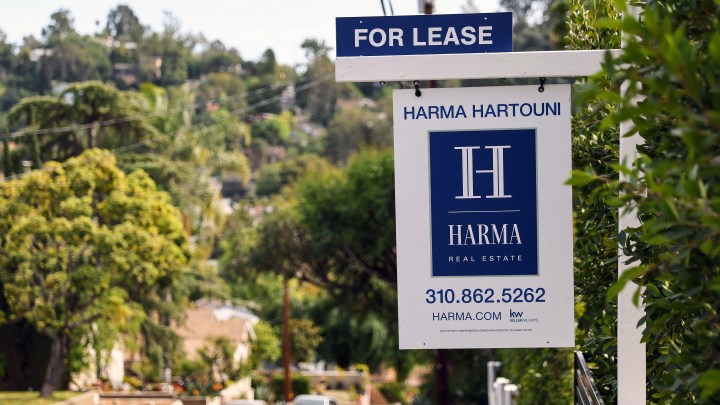
Higher interest rates may not make a dent in rising rents for more than a year
Higher interest rates may not make a dent in rising rents for more than a year

Rents, depending on your data source, are in the low double digits nationally. They are contributing mightily to inflation.
The Federal Reserve is busy raising interest rates, which should rein in the housing market and, in turn, rents. But not only will it take a while for that to happen, it will take even longer for it to show up in the inflation numbers.
Renters in many places are being bled dry and, at some point, there’s just no more room to give.
“I don’t think we can go much higher from a rent perspective at this point, given affordability issues that are popping up all over the country,” said Thomas LaSalvia, a senior economist with Moody’s Analytics CRE.
As renters reach their breaking point, and as the labor market slows down, demand should too.
“Slowly but surely, over the next six months, we will start to see those rent increases — the month-over-month increases — moderate and slow,” said Chris Mayer, a real estate professor at Columbia Business School.
But “moderate” and “slow” does not mean rents will go down; it just means the equivalent of a 5% yearly increase instead of 10%.
Plus, there is still a lot of built-up demand to get through before we start to whittle down rent growth to something anyone would call normal.
“We have potential entry-level homeowners, people who want to buy an entry-level home, who can’t, and then they move into the rental market,” said Elliot Eisenberg, a prominent housing economist.
And what the Fed is doing to fight inflation, raising rates — that’s not going to touch rents for a while.
“Usually, it takes about six months to see mortgage rates start to impact home prices,” said Laura Rosner-Warburton with MacroPolicy Perspectives. “And then it could take another year for those prices to eventually filter into rent.”
She added that, on top of that, the official measures of inflation — the consumer price index and the personal consumption expenditures price index — their measurement of new rents is really slow.
The bottom line? Rent growth may slow down, but it may keep propping up inflation for years.
There’s a lot happening in the world. Through it all, Marketplace is here for you.
You rely on Marketplace to break down the world’s events and tell you how it affects you in a fact-based, approachable way. We rely on your financial support to keep making that possible.
Your donation today powers the independent journalism that you rely on. For just $5/month, you can help sustain Marketplace so we can keep reporting on the things that matter to you.











